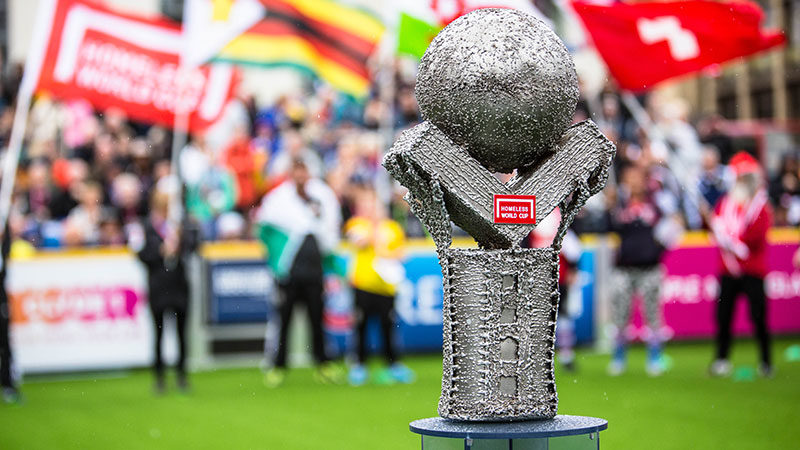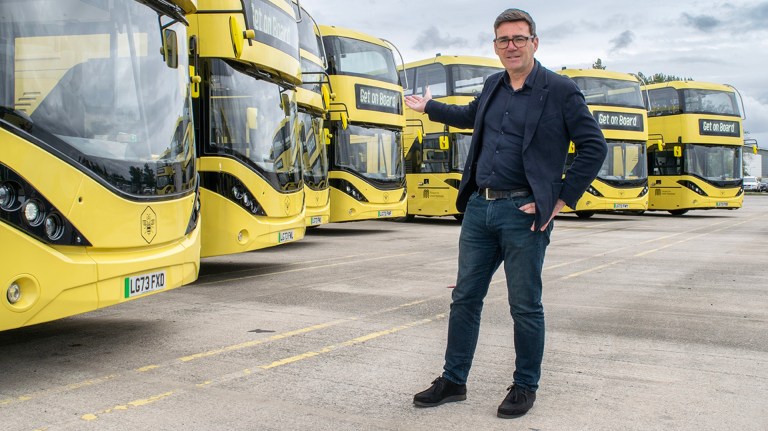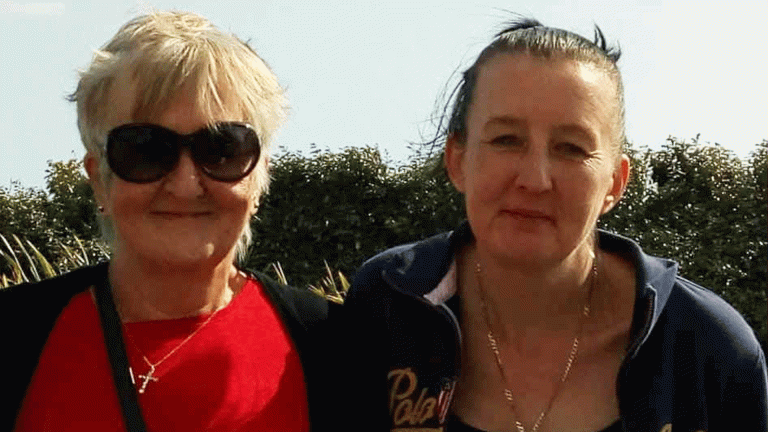Last year’s iteration raised around £10m for causes all over the world that helped to give employment opportunities to homeless people in a bid to get them off the streets.
It has come a long way from its humble beginnings in 2001. The idea for the tournament came from co-founders Mel Young and Harald Schmied, who saw the good that the beautiful game can do in combating social issues following a conference on homelessness in 2001.
Just two years later, the first ball was kicked in the inaugural tournament in Graz, Austria.
The Homeless World Cup is a great example of how a simple initiative can change the lives of thousands of people using a ball.
The trailblazing event has occupied a pioneering role in the field of sport and development ever since. It has even received the backing of big names, with Celtic captain Scott Brown, Trainspotting author Irvine Welsh and Hollywood A-lister Colin Farrell all voicing their support for the cause as well as legendary manager Sir Alex Ferguson.
But while it marked a new way to tackle the issue of global homelessness, which sits at an estimated 100 million people around the globe according to the most recent UN study, some things never change – England slipped to yet more summer disappointment as they lost 2-1 to hosts Austria in the first final.
Advertising helps fund Big Issue’s mission to end poverty
- 14 tournaments have taken place
- 54 countries will be represented in Oslo
- 500 players will take to the pitch in the 2017 World Cup
- 94% of players say that participating in the tournament has had a positive impact on their lives
- 3,000,000 will watch the tournament online
- 100,000 spectators will head to Oslo to support their team
- £10,000,000 was raised by the 2016 tournament to support global homelessness causes
Off the field, the tournament has made huge strides with more than 70 national partners on board.
Each partner helps to improve every player’s prospects when they return – with none appearing at more than one event. Whether it’s through education, employment in social enterprises or other businesses, substance abuse rehabilitation and supported housing, players are supported long after the final whistle.
But the experience at the tournament is just as beneficial, offering the chance to be part of a team and promoting a health-orientated lifestyle to help each player kick on.
In fact, 94 per cent of players consistently say that the Homeless World Cup has had a positive impact on their lives, according to organisers.
And once they have hung up their boots, the players have the opportunity to pick up a whistle and officiate at the tournament through a course provided by the Homeless World Cup Foundation and their national partners.
Advertising helps fund Big Issue’s mission to end poverty
The group also offers a European Commission-backed Erasmus+ programme that allows skills, experiences and knowledge to be shared between 21 European partners through street football festivals and other events.
The challenge for the teams will be to break the Mexican stranglehold on both sets of trophies, with the men’s and women’s titles heading back to the North American country in 2015 and 2016.
Mexico are the joint most-successful side in the history of the Homeless World Cup, with Scotland and football heavyweights Italy and Brazil also scooping two victories.
On the home front, teams from England, Scotland, Wales and Northern Ireland will be making the trip to Scandinavia in the hope of knocking Mexico off their perch.
Find out more about the tournament, including revealing player profiles in this week’s Big Issue.
Advertising helps fund Big Issue’s mission to end poverty
PREVIOUS WINNERS
2003 – Host City: Graz, Austria – Winner: Austria
2004 – Host City: Gothenburg, Sweden – Winner: Italy
2005 – Host City: Edinburgh, Scotland – Winner: Italy
2006 – Host City: Cape Town, South Africa – Winner: Russia
2007 – Host City: Copenhagen, Denmark – Winner: Scotland
2008 – Host City: Melbourne, Australia – Winner: Zambia
Advertising helps fund Big Issue’s mission to end poverty
2009 – Host City: Milan, Italy – Winner: Ukraine
2010 – Host City: Rio de Janeiro, Brazil – Men’s Winners: Brazil – Women’s Winners: Brazil
2011 – Host City: Paris, France – Men’s Winners: Scotland – Women’s Winners: Kenya
2012 – Host City: Mexico City, Mexico – Men’s Winners: Chile – Women’s Winners: Mexico
2013 – Host City: Poznan, Poland – Men’s Winners: Brazil – Women’s Winners: Mexico
2014 – Host City: Santiago, Chile – Men’s Winners: Chile – Women’s Winners: Chile
Advertising helps fund Big Issue’s mission to end poverty
2015 – Host City: Amsterdam, Netherlands – Men’s Winners: Mexico – Women’s Winners: Mexico
2016 – Host City: Glasgow, Scotland – Men’s Winners: Mexico – Women’s Winners: Mexico
Pictures courtesy of Homeless World Cup










